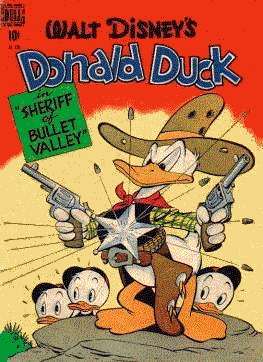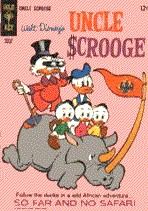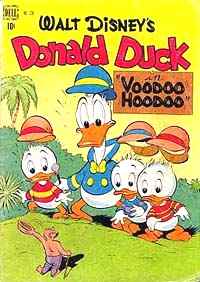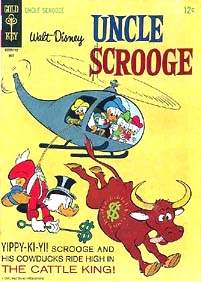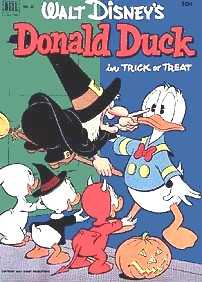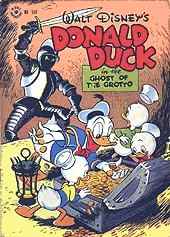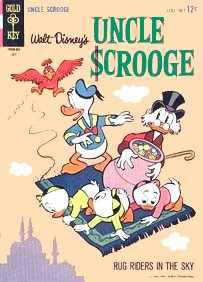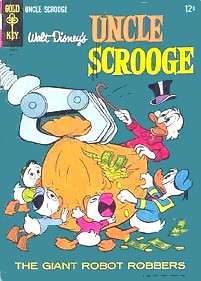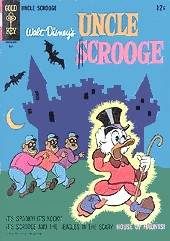DD26
Trick or Treat 1952 (Cartoon: Trick or
Treat 1952)
DD54 Forbidden Valley 1957 (Film:
Forbidden Valley 1938)
FC0199
Sheriff of Bullet Valley 1948 (Film:
Sheriff of Redwood Valley 1946)
U$11
Riches, Riches Everywhere 1955 (Film:
Water, Water Everywhere 1920)
U$29 Island in the Sky 1960 (Film:
Island in the Sky 1953)
U$31 All at Sea 1960 (Film: All
at Sea 1957)
U$36 The Midas Touch 1962 (Film:
The Midas Touch 1940)
U$43 For Old Dime's Sake (Saying:
For Old Time's Sake)
U$46 Lost Beneath the Sea 1963 (Film:
Secret Beneath the Sea 1963)
U$51 How Green was My Lettuce
1964 (Film: How Green was My Valley 1941)
U$57 The Swamp of no Return 1965
(Film: The River of no Return 1954
U$59 North of the Yukon 1965 (Film:
North of the Yukon 1939)
U$61 So Far and No Safari (Pun:
So Far - No Safar...)
WDCS256
Northeaster on Cape Quack (Painting:
Edward Kautzky 'Northeaster on Cape Ann')
WDCS262 Rags to Riches 1962 (Saying:
Rags to Riches)
WDCS269 A Matter of Factory (Saying:
As a Matter of Fact)
WDCS274 Gall of the Wild 1963 (Film:
Call of the Wild 1935)
WDCS278 Have Gun - Will Dance
1963 (Film: Have Gun - Will Travel 1957)
WDCS281 Feud and Far Between (Saying:
Few and Far Between)
WDCS297 Monkey Business 1965 (Film:
Monkey Business 1952)
|
